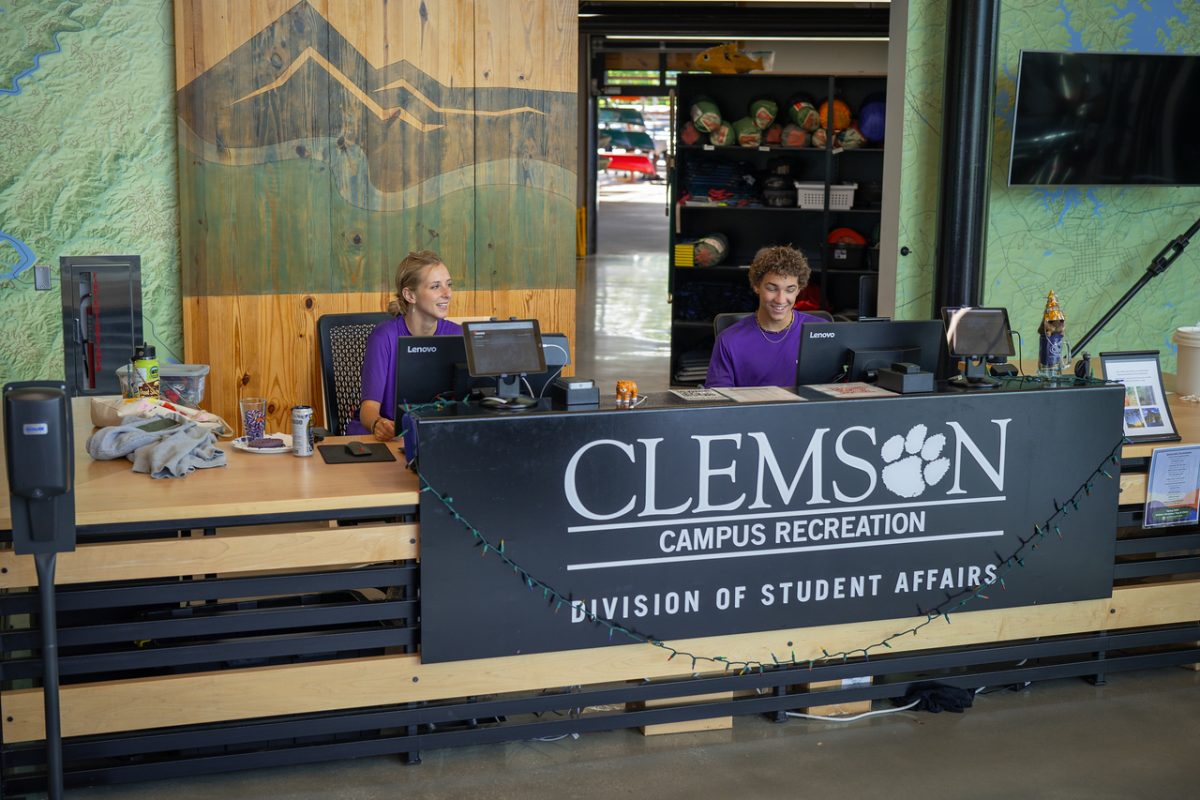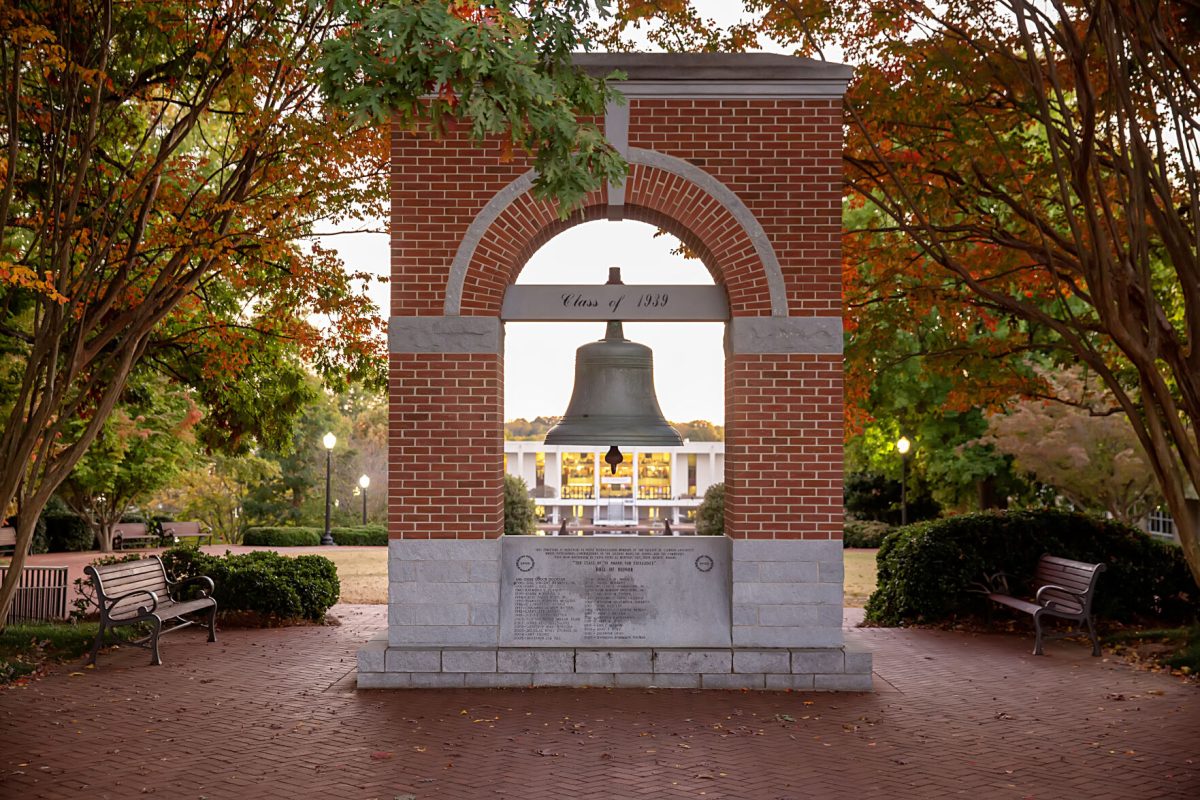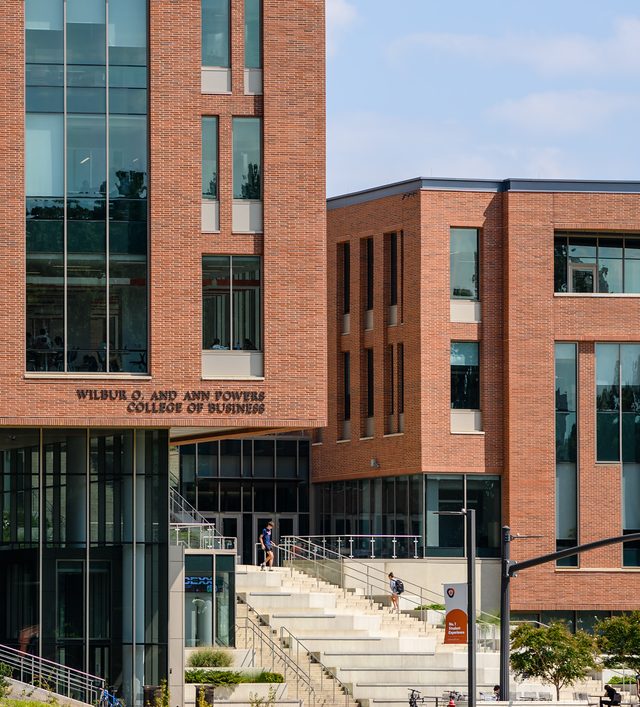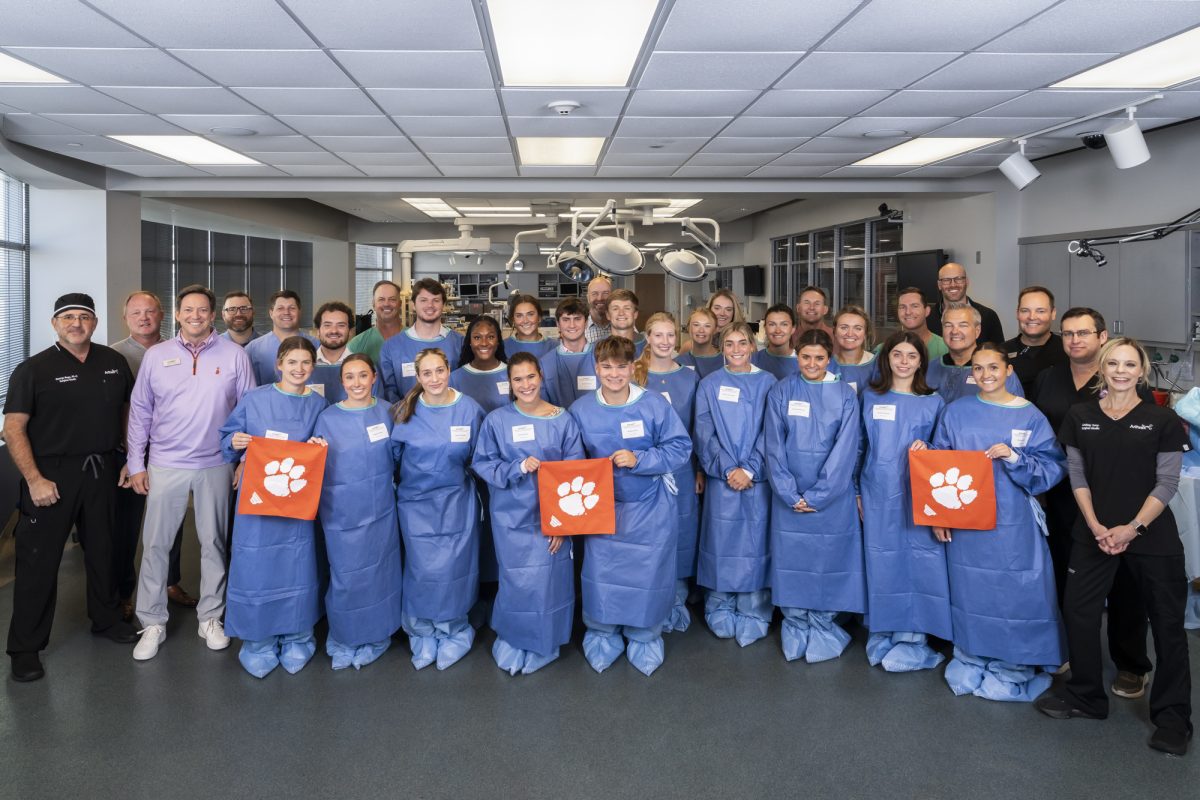To expedite the delivery of supplies and gather data in real time for responders combating natural emergency disasters, students at the Clemson University International Center for Automotive Research in Greenville (CU-ICAR) developed an off-road vehicle last summer through its Deep Orange program.
The Deep Orange program, housed within the University’s Master of Science in automotive engineering program, allows students to practice hands-on automotive engineering development. Every one to two years, the program begins a new project, which spans from Deep Orange 1 through 14.
The Deep Orange 14 vehicle, which made its debut in August 2023, can sense and navigate unknown terrain and is equipped with cameras and a high-accuracy GPS. The vehicle can reach up to 45 mph, scale 18-inch-high obstacles, maneuver 60% grade surfaces and pivot 360 degrees in two seconds, according to the Engineering and Science Dean’s Report.
“Being challenged as a student to develop something of this complexity, something at the edge of technology, is an incredible learning experience, let alone seeing their work live on through the discoveries of our researchers,” Chris Paredis, the previous BWM Chair in Systems Integration at Clemson, commented in the 2024 IDEAS Dean’s Report.
The report further discussed that to make the 14th prototype possible, two cohorts of Deep Orange students collaborated across three years to develop this off-road vehicle from scratch.
“Witnessing the development of a vehicle from the ground up and observing its successful performance while meeting all specifications is incredibly rewarding,” Kaivalya Khorgade, who served as Deep Orange 14’s chief vehicle engineer, said.
Students at CU-ICAR collaborated with faculty, staff and the project’s primary sponsor, the U.S. DEVCOM Ground Vehicle Systems Center (GVSC), to complete the project. Deep Orange 13, another autonomous off-ground vehicle, was also previously created in partnership with GVSC.
Clemson originally announced its strategic partnership with GVSC in 2020. The partnership was designed to “propel research breakthroughs in off-road vehicle autonomy” and produce digital engineering tools to support the GVSC mission and Clemson’s automotive engineering program.
David Gorsich, a U.S. Army chief scientist at GVSC, told Clemson News that the project helps address key developmental areas, such as powertrain electrification and digital engineering processes.
“Reliable and robust off-road driverless technology is critical to developing the next generation of military mobility vehicles,” Gorsich said. “Even more critical is developing skilled and experienced engineers who can continue to drive innovation in our sector in the future.”
Before its partnership with GVSC, Deep Orange projects ranged from the initial project, Deep Orange 1, which was “created with the Gen-Y consumer segment in mind,” to Deep Orange 12, an autonomous high-speed race car, as described in a 2021 Clemson News article.
At the 2023 Consumer Electronics Show in Las Vegas, the Deep Orange 11 project was unveiled to the public and is an autonomous, ride-sharing vehicle that would be available to drive on public streets by 2035. The unveiling of the project signified a new innovation in the sustainable automotive industry at one of the main electronic vehicle trade shows in the country.
“CES is the most powerful tech event in the world — the proving ground for breakthrough technologies and global innovators. This is where brands get business done, meet new partners and where the industry’s sharpest minds take the stage to unveil their latest releases and boldest breakthroughs,” according to the mission statement on the Consumer Technology website.
“I have been waiting for this moment since the time we finished it,” Aditya Bhagat, a 2021 graduate and current battery-systems engineer at the Nikola Corporation, told Clemson News in January. “I was very happy to learn that we are finally unveiling it and that it’s being unveiled at one of the biggest events out there for EVs.”
The Deep Orange 11 car’s theme, “Sustainable by Design,” allowed students working on the project to make the vehicle sustainable for use and run autonomously without a steering wheel, according to a Clemson News article about the unveiling event.
In 2023, Clemson University launched the nation’s first undergraduate Bachelor of Science program in automotive engineering at CU-ICAR. The program launched with 33 students in fall 2023 and is expected to grow to over 200 students by fall 2027, according to the 2024 IDEAS Dean’s report.
The Deep Orange project is a hands-on way for many of these current and future students to practice their engineering skills and will continue in the future, with Deep Orange 15 plans expected to emerge soon.









